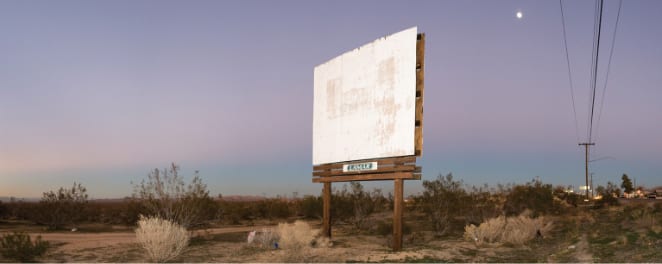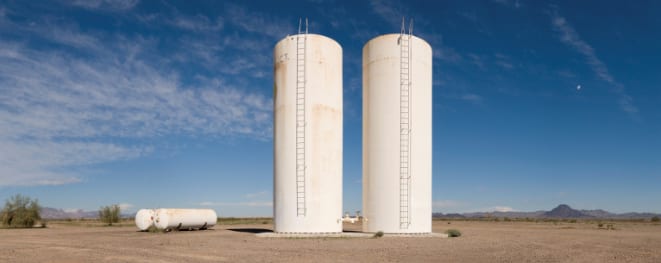Richard Gilles finds inspiration in abandoned and neglected spaces- motor homes left in large fields, gigantic highway infrastructures and blank billboards. Photographs selected from the series Signs of the Times and Almost Home-Less featured at DNJ Gallery present panoramic photographs of blank billboards littered along double-decker highways and sprawling desert vistas. The billboards are found in varying states- some are in shambles barely held together by planks of wood, while others are solid steel structures that have been erected in what seems like the middle of the nowhere.

Why did you decide to pursue your artistic practice on the West Coast?
It is not so much deciding where to make art as it is deciding to make art where you are.

What do you find distracting about your urban environment?
The urban environment is a crucible for creativity and its “distractions” are the artist’s muse. What I mean by that is that urban cities are densely populated areas and it is that density that causes people and ideas to bump up against each other. It’s this friction that I feel is often the genesis for real creativity.
What do you feel is unique to your city?
One of the unique features of California that has most influenced my work is the culture of the car. Much of my recent work has centered around encounters on the road.


What do you find most appealing about New York?
The most attractive feature of New York has got to be its high density of “distractions.”

What artists have influenced your practice the most?
The photographer that has most significantly influenced me is probably the consummate New York photographer, Weegee (Arthur Fellig).

Images front he series Signs Of The Times & Almost Home-less
Courtesy of DNJ Gallery
THE 20+20 PHOTOGRAPHY ISSUE
Richard Gilles is featured within Installation Magazine’s special 20+20 Photography Issue, which highlighted 20 Los Angeles and 20 New York City photographers. Download the full issue on your iPad and iPhone.
